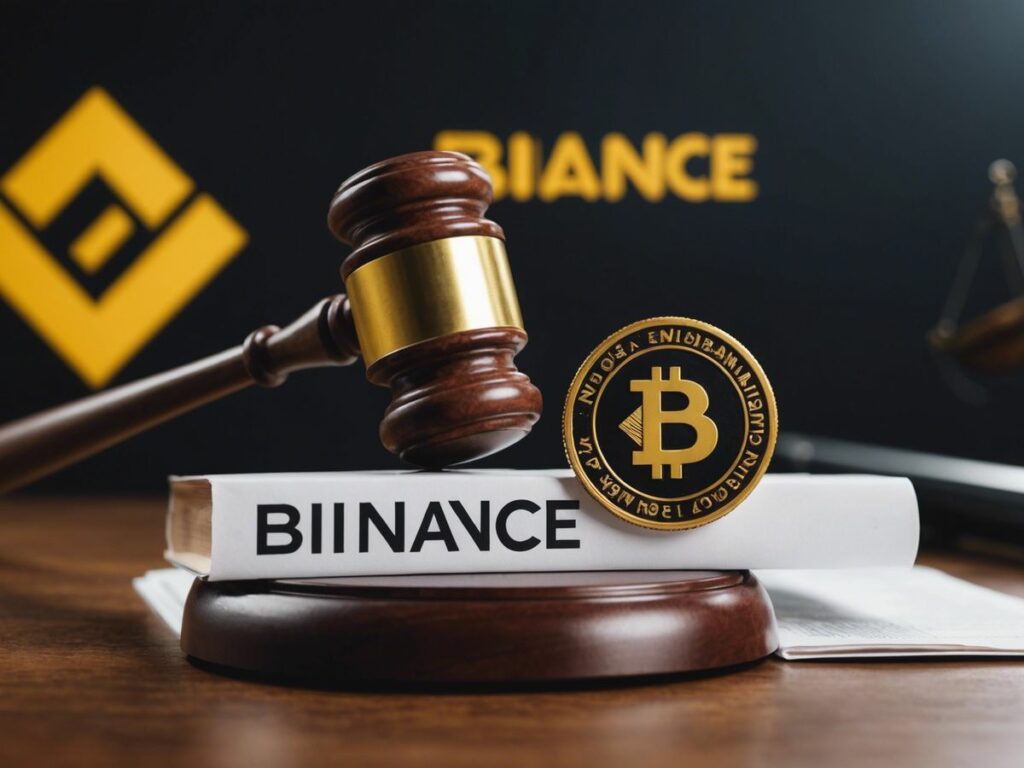The recent lawsuits filed by the U.S. Securities and Exchange Commission (SEC) against two of the largest cryptocurrency exchanges, Binance and Coinbase, have sent shockwaves through the crypto industry. These legal actions have not only highlighted regulatory challenges but also unified industry players in their response to the SEC’s approach to regulation.
Key Takeaways
- The SEC has filed lawsuits against Binance and Coinbase, alleging the offering of unregistered securities.
- Industry leaders criticize the SEC’s approach, calling it unacceptable and lazy.
- The lawsuits could drive crypto companies away from the U.S. and weaken consumer confidence.
- The SEC’s actions have led to significant market reactions, including withdrawals and stock price fluctuations.
SEC’s Allegations and Industry Response
On June 5, 2023, the SEC filed a lawsuit against Binance, accusing the exchange of offering unregistered securities and other regulatory violations. The following day, the SEC targeted Coinbase with similar allegations, claiming that popular cryptocurrencies like Solana (SOL), Polygon (MATIC), and The Sandbox (SAND) qualify as securities.
Industry professionals have voiced their concerns over the SEC’s actions. Kristin Smith, CEO of the Blockchain Association, stated that while the SEC’s actions were expected, they are still unacceptable. She emphasized that the SEC does not make the law and criticized the commission for distracting from substantive policy efforts.
Paolo Ardoino, CTO of Tether, echoed these sentiments, highlighting the uncertainty of rules and guidance in the U.S. Ted Shao, CEO of Turbos Finance, also criticized the SEC’s stance, stating that it is against the entire Web3 space.
Impact on the Crypto Industry
The SEC’s lawsuits are expected to have far-reaching effects on the crypto industry. Will Paige, a crypto analyst at Insider Intelligence, noted that the SEC’s intent to police the space through enforcement could further weaken consumer confidence in cryptocurrencies. Ben Caselin, Chief Strategy Officer at MaskEX, suggested that the lawsuits could open up opportunities for other jurisdictions like Hong Kong, Dubai, or El Salvador to attract crypto talent and capital.
Oscar Franklin Tan, Chief Legal Officer at Enjin, pointed out that the SEC’s actions could drive talent and innovation out of the U.S. to countries with clearer rules. He mentioned that progressive countries like Singapore and Japan could benefit from this shift.
Doubts on SEC’s Fairness and Motivations
Some industry professionals have questioned the fairness and motivations behind the SEC’s actions. David Schwed, COO of Halborn, argued that the SEC’s mandate to safeguard investors could be better achieved through clear regulations rather than enforcement actions. He also suggested that SEC Chair Gary Gensler’s personal ambitions might be influencing the commission’s actions.
Alex Strześniewski, founder of AngelBlock, described the SEC’s actions as lazy and not conducive to proper regulation. Tim Shan, COO of Dexalot, expressed mixed feelings, stating that the SEC’s approach is unfair to the crypto community.
Market Reactions and Future Outlook
The SEC’s crackdown has led to significant market reactions. Stephan Lutz, CEO of BitMEX, noted that the lawsuits could put downside pressure on the prices of crypto stocks, altcoins, and valuations of U.S.-based crypto startups. He also mentioned that investors might divest towards Bitcoin and stablecoins due to their perceived stability.
In the medium to long term, Lutz believes that exchanges will be more cautious when dealing with U.S. customers. He expressed frustration over regulators taking the issue of securities definition to the courthouse instead of providing clearer guidelines.
The lawsuits against Binance and Coinbase mark a critical juncture for the crypto industry. As the legal battles unfold, they will likely set new precedents and shape future regulations. The industry awaits the outcomes with bated breath, anticipating far-reaching effects on its operations and regulatory landscape.
Sources
- SEC lawsuits against Binance and Coinbase unify the crypto industry, Cointelegraph.
- SEC vs Binance, Coinbase, Kraken Lawsuits Usher Tough New Era, Techopedia.
- Binance, Coinbase head to court; the SEC labels 67 crypto-securities, Cointelegraph.
- Full List of Cryptos Named Securities in SEC Lawsuits, BeInCrypto.
- Binance Lawsuit: US SEC Files Coinbase Insider Case as Supplemental Authority in Binance Suit, CoinGape.
